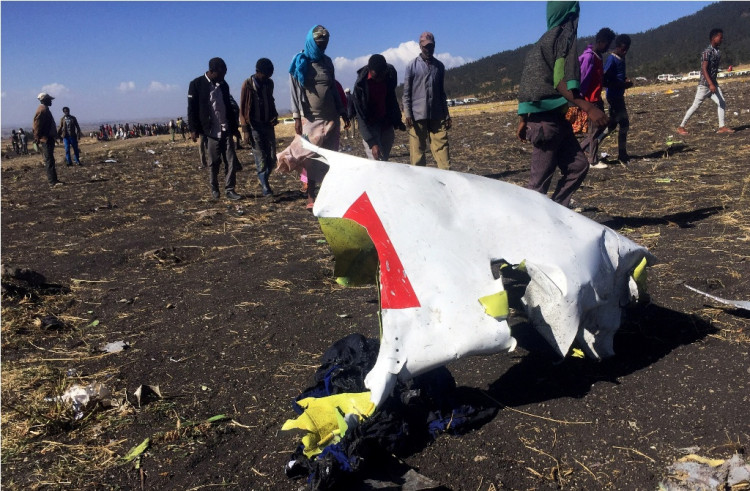Preliminary findings on the Boeing 737 Max probe revealed that the Ethiopian Airlines' pilot did what he was supposed to do before the jetliner nosedived repeatedly and crashed. The American jetliner's CEO, Dennis Muilenburg indirectly agreed with the investigators' findings as he acknowledged that bad data integrated into the flight system of the 737 Max models had something to do with the two crashes.
According to CNBC, Muilenberg said in a video posted to Boeing's official Twitter page on Thursday, "But with the release of the preliminary report of the Ethiopian Airlines flight 302 accident investigation it's apparent that in both flights the Maneuvering Characteristics Augmentation System, known as MCAS, activated in response to erroneous angle of attack information."
Muilenberg's statements seem to echo investigators' comments earlier on Thursday, revealing that both the Lion Air crash in October and the Ethiopian Airlines crash in March displayed similar control system issues before they crash-landed. Furthermore, Ethiopian Transport Minister Dagmawit Moges told reporters that the down jetliner's crew took necessary measures as recommended by Boeing but to no avail.
According to CNN, the Boeing 737 Max probe came out with preliminary results suggesting that the Ethiopian Airlines' crew members took necessary measures as recommended by the American jetliner but they couldn't control the malfunctioning plane.
Following the release of the news, investigators said Boeing should look over the "aircraft flight control system related to the flight controllability" in other Max 737 models. The company has yet to release an official statement on the issue.
Aviation expert Richard Quest said Boeing is now under extreme pressure after Thursday's press conference even if it was previously known for its reputation in the aviation industry. "The focus does turn firmly, fairly and squarely onto Boeing," Quest said.
Aside from the revelation that pilots were unable to control the Boeing 737 Max jetliner, the preliminary findings also revealed that the Ethiopian Airlines jetliner nosedived a number of times before it finally crashed and took the lives of 157 people, BBC News, reported.
Some industry experts pointed out that the bits of information on the Boeing 737 Max probe could suggest that the jetliner malfunctioned and resulted to repeated nosedives on both the Ethiopian Airlines and the Lion Air flight that crashed in October in Indonesia.
Adding to the smear in Boeing's reputation and the aviation industry as a whole is the release of news that a pilot for a U.S. airline asked his managers a couple of months before the Lion Air crash for additional training before flying the 737 Max. According to Quartz, the said pilot was reprimanded for his move.
The pilot was reportedly required by the Federal Aviation Administration (FAA) to take a video tutorial on the Boeing 737 Max since he already received certification to fly existing models of the aircraft. The said pilot shared his experience with the outlet on condition of anonymity. The FAA has yet to respond to queries on this matter.





